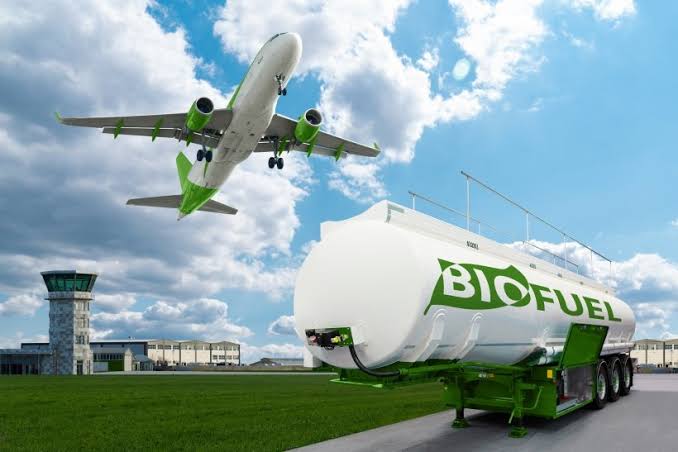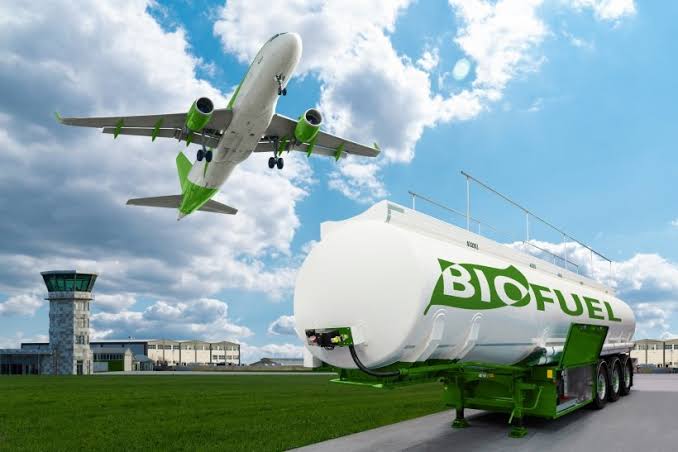Empowering Aviation: The Rise of Sustainable Aviation Fuel
In an era where climate change concerns are at the forefront of global discourse, industries across the board are seeking ways to reduce their environmental footprint. Aviation, responsible for a significant portion of global carbon emissions, is no exception. In response to this pressing challenge, the aviation industry has been increasingly turning to sustainable aviation fuel (SAF) as a promising solution. Let's delve into what SAF is, its benefits, challenges, and its potential to revolutionize air travel sustainability.
What is Sustainable Aviation Fuel (SAF)?
Sustainable aviation fuel, also known as biojet fuel or renewable jet fuel, is a type of aviation fuel derived from sustainable feedstocks such as waste oils, agricultural residues, algae, or dedicated energy crops. Unlike conventional jet fuel, which is derived from fossil fuels, SAF offers a more environmentally friendly alternative by significantly reducing greenhouse gas emissions, particularly carbon dioxide (CO2).
Benefits of Sustainable Aviation Fuel:
1. Reduced Carbon Emissions: SAF has the potential to reduce carbon emissions significantly compared to traditional jet fuel. Depending on the feedstock and production process, SAF can achieve up to an 80% reduction in lifecycle CO2 emissions.
2. Compatibility with Existing Infrastructure: One of the key advantages of SAF is its compatibility with existing aircraft and infrastructure. It can be blended seamlessly with conventional jet fuel and used in existing aircraft engines without the need for modification.
3. Diversification of Energy Sources: By shifting away from fossil fuels and towards renewable feedstocks, SAF helps diversify the aviation industry's energy sources, reducing reliance on finite resources and enhancing energy security.
4. Job Creation and Economic Growth:The production and deployment of SAF have the potential to stimulate economic growth and create new job opportunities in the renewable energy sector, contributing to a more sustainable and resilient economy.
Challenges and Barriers:

Despite its potential benefits, several challenges and barriers hinder the widespread adoption of sustainable aviation fuel:
1.Cost: Currently, SAF production costs are higher than those of conventional jet fuel, primarily due to limited production scale and higher feedstock prices. As a result, SAF is often more expensive, making it less economically competitive in the market.
2. Feedstock Availability: The availability of sustainable feedstocks for SAF production is limited, posing a challenge to scaling up production to meet the growing demand from the aviation industry.
3. Policy and Regulatory Frameworks: Inconsistent or inadequate policy frameworks and regulations can impede the development and deployment of SAF, hindering investment and innovation in the sector.
4. Infrastructure Development: Expanding the infrastructure for SAF production, distribution, and refueling facilities is essential for enabling widespread adoption. However, this requires significant investment and coordination among industry stakeholders.
The Future of Sustainable Aviation Fuel:
Despite these challenges, the future outlook for sustainable aviation fuel is promising. Governments, industry stakeholders, and environmental organizations are increasingly recognizing the importance of decarbonizing the aviation sector and are taking steps to support the development and deployment of SAF. Initiatives such as incentives, mandates, research funding, and public-private partnerships are driving innovation and investment in sustainable aviation fuel technologies.
 Sustainable aviation fuel
Sustainable aviation fuel
In conclusion, sustainable aviation fuel holds immense potential to transform the aviation industry by significantly reducing carbon emissions and advancing sustainability goals. While challenges remain, concerted efforts from all stakeholders are essential to overcome barriers and accelerate the transition towards a more sustainable and environmentally responsible aviation sector. As innovation continues and economies of scale are realized, sustainable aviation fuel is poised to play a pivotal role in shaping the future of air travel.



Thanks for this information
Absolutely useful
You must be logged in to post a comment.